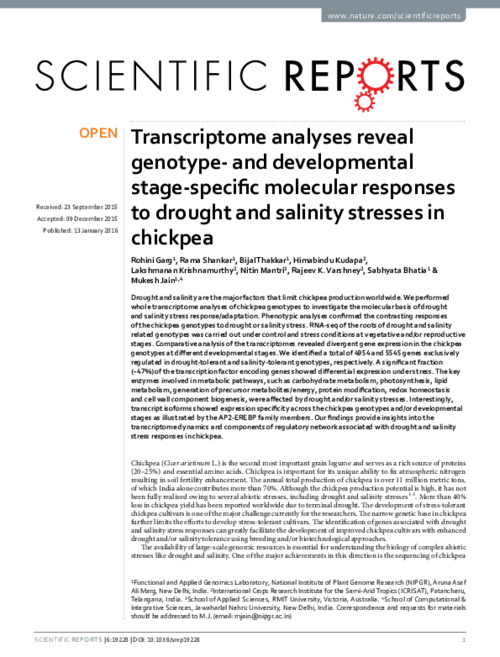Transcriptome analyses reveal genotype- and developmental stage-specific molecular responses to drought and salinity stresses in chickpea
Abstract
Drought and salinity are the major factors that limit chickpea production worldwide. We performed
whole transcriptome analyses of chickpea genotypes to investigate the molecular basis of drought
and salinity stress response/adaptation. Phenotypic analyses confirmed the contrasting responses
of the chickpea genotypes to drought or salinity stress. RNA-seq of the roots of drought and salinity
related genotypes was carried out under control and stress conditions at vegetative and/or reproductive
stages. Comparative analysis of the transcriptomes revealed divergent gene expression in the chickpea
genotypes at different developmental stages. We identified a total of 4954 and 5545 genes exclusively
regulated in drought-tolerant and salinity-tolerant genotypes, respectively. A significant fraction
(~47%) of the transcription factor encoding genes showed differential expression under stress. The key
enzymes involved in metabolic pathways, such as carbohydrate metabolism, photosynthesis, lipid
metabolism, generation of precursor metabolites/energy, protein modification, redox homeostasis
and cell wall component biogenesis, were affected by drought and/or salinity stresses. Interestingly,
transcript isoforms showed expression specificity across the chickpea genotypes and/or developmental
stages as illustrated by the AP2-EREBP family members. Our findings provide insights into the
transcriptome dynamics and components of regulatory network associated with drought and salinity
stress responses in chickpea

